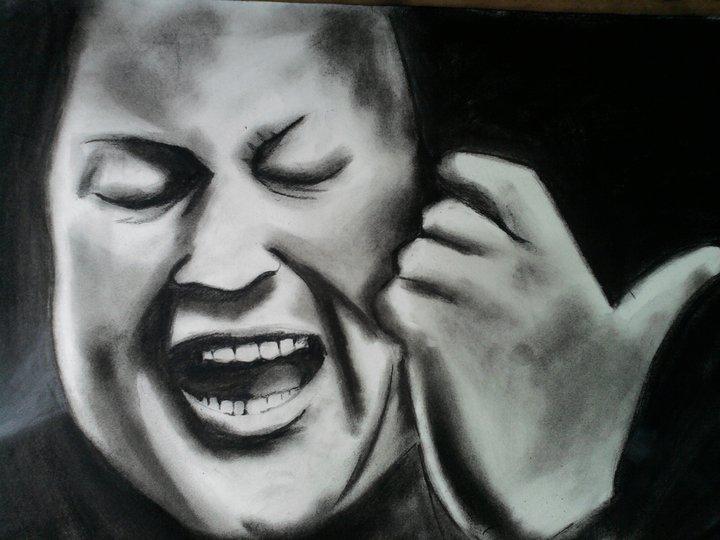
Nusrat Fateh Ali Khan & Ghulam Farid Sabri. Photo by Mfi.media Wikimedia Commons
Top 10 Astonishing Facts about Nusrat Fateh Ali Khan
Pervez Fateh Ali Khan, better known by his stage name Nusrat Fateh Ali Khan, was a Pakistani singer, songwriter, and music director who specialized in the Sufi devotional music genre of qawwali.
He was born on October 13, 1948, and died on August 16, 1997. He is frequently referred to as “Shahenshah-e-Qawwali” (the King of Kings of Qawwali), and according to The New York Times, he is one of the greatest qawwali singers of all time as well as the greatest Sufi singer in the languages of Punjabi, Urdu, and Hindi.
In 2016, LA Weekly ranked him as the fourth greatest singer of all time. He was well-known for having a powerful voice and could perform for hours at a time. International audiences were first exposed to qawwali music thanks in large part to Khan.
Here are top 10 astonishing facts about Nusrat Fateh Ali Khan that you should know:
1.The first son of Fateh Ali Khan, a musicologist, vocalist, and qawwal, Nusrat Fateh Ali Khan was the fifth child
He was the first son and fifth child of musicologist, vocalist, and qawwal Fateh Ali Khan. Khan was raised in central Faisalabad with his family, which includes four older sisters and a younger brother named Farrukh Fateh Ali Khan. For nearly 600 years, the family had practiced qawwali through successive generations.
2.The father of Nusrat opposed him being an artist
Khan’s father initially opposed him going into the family business. He believed qawwali singers had a low social status, thus he had his heart set on Nusrat selecting a much more respectable career route and becoming a doctor or engineer. Khan, though, had such skill and enthusiasm in qawwali that his father eventually gave in.
3.Numerous languages are used in Nusrat Fateh Ali Khan’s music
After his uncle Mubarak Ali Khan passed away in 1971, Khan became leadership of the family’s qawwali group, which adopted the name Nusrat Fateh Ali Khan, Mujahid Mubarak Ali Khan & Party.
As the head of the qawwali movement, Khan made his first public appearance during a studio recording that was broadcast as a part of Radio Pakistan’s yearly Jashn-e-Baharan music festival. Khan primarily performed in Urdu and Punjabi, with sporadic performances in Persian, Braj Bhasha, and Hindi.
The song Haq Ali Ali, which was performed in a traditional manner and with traditional instrumentation, was his first big success in Pakistan. Khan used his sargam improvisations sparingly in the song.
4.Khan’s music is worldwide known

Nusrat Fateh Ali Khan & Ghulam Farid Sabri. Photo by Mfi.media Wikimedia Commons
Khan is regularly mentioned as one of the founders of “world music.” He was one of the first and most significant performers to make qawwali, which was often seen of as a “arcane religious tradition,” more accessible to Western audiences.
He was widely praised for his spiritual charisma and unusual exuberance. His music became extremely popular throughout Europe as a result of his intense vocal performances, some of which lasted up to ten hours.
5.Awards and distinctions for Nusrat Fateh Ali Khan
Most people agree that Khan is the greatest qawwal in history. He was honoured for his contribution to Pakistani music in 1987 with the President of Pakistan’s Award for Pride of Performance.
He was awarded the UNESCO Music Prize in 1995. At the Montreal World Film Festival in 1996, he received the Grand Prix des Amériques for his outstanding contribution to the cinematic arts. Khan was awarded the Fukuoka Asian Culture Prizes’ Arts and Culture Prize that same year.
He was also known as the Budai, or “Singing Buddha,” in Japan.
6.Khan’s recognized by Google
In six nations, including India, Pakistan, Japan, Sweden, Ghana, and Kenya, Google featured a doodle in honour of Khan’s 67th birthday on October 13, 2015, referring to him as the one “who introduced the world’s ears to the rich, hypnotic music of the Sufis.” Google stated that Khan “helped bring ‘world music’ to the world thanks to his iconic voice.”
7.Nusrat composed for Pakistani and Bollywood

MFI’s mission presented to Nusrat Fateh Ali Khan & Ghulam Farid Sabri. Photo by Mfi.media –Wikimedia Commons
Khan appeared in and contributed songs to a number of Pakistani movies. He wrote the music for three Bollywood movies just before he passed away, including Aur Pyaar Ho Gaya, in which he also performed “Koi Jaane Koi Na Jaane” and “Zindagi Jhoom Kar” on-screen with the principal actors. Alongside Udit Narayan, he sang for the songs “Ishq Da Rutba” and “Bahaa Na Aansoo” on the Kartoos soundtrack.
He passed away just before the film’s debut. His final piece of music for a Bollywood film was for the song “Iss Shaan-E-Karam Ka Kya Kehna” in the film Kachche Dhaage. Two years after his passing, in 1999, the movie was released.
8.Khan experimented with Western music
Khan’s avant-garde compositions for Real World, which included his partnerships with Canadian guitarist Michael Brook, sparked a number of additional associations with Western composers and rock performers.
One of the most notable of these partnerships took place in 1995 when Eddie Vedder of Pearl Jam and Khan collaborated on two songs for the soundtrack to the film Dead Man Walking.
Khan contributed vocals to Jonathan Elias’ The Prayer Cycle as well, but he passed away before the music could be finished. He invited Alanis Morissette to perform with his unfinished voice. On the posthumously released song “Signal to Noise” on his album Up in 2002, Gabriel used Khan’s vocals.
9.Nusrat Fateh Ali Khan received Grammy nominations

Ustad Nusrat Fateh Ali Khan. Photo by Ramkishan950- Wikimedia Commons
In 1997, Khan’s album Intoxicated Spirit received a Grammy Award nomination for Best Traditional Folk Album. His album Night Song was nominated for a Grammy Award that same year for Best World Music Album.
10.Khan’s death from a sudden heart arrest
Khan, according to several reports, was over 137 kg (300 pounds). A representative for his American Recordings label said he had been seriously ill for a number of months.
He was transported from the airport to Cromwell Hospital in London after flying from his native Pakistan to receive treatment for liver and renal issues. On August 16, 1997, at the age of 48, he passed away from a sudden heart arrest in Cromwell Hospital.
His funeral was a public event, and his body was returned to Faisalabad. He was interred in the Jhang Road Graveyard, popularly known as Kabootran Wala Qabristan, on Jhang Road in Faisalabad.
Planning a trip to Paris ? Get ready !
These are Amazon’s best-selling travel products that you may need for coming to Paris.
Bookstore
- The best travel book : Rick Steves – Paris 2023 – Learn more here
- Fodor’s Paris 2024 – Learn more here
Travel Gear
- Venture Pal Lightweight Backpack – Learn more here
- Samsonite Winfield 2 28″ Luggage – Learn more here
- Swig Savvy’s Stainless Steel Insulated Water Bottle – Learn more here
Check Amazon’s best-seller list for the most popular travel accessories. We sometimes read this list just to find out what new travel products people are buying.













